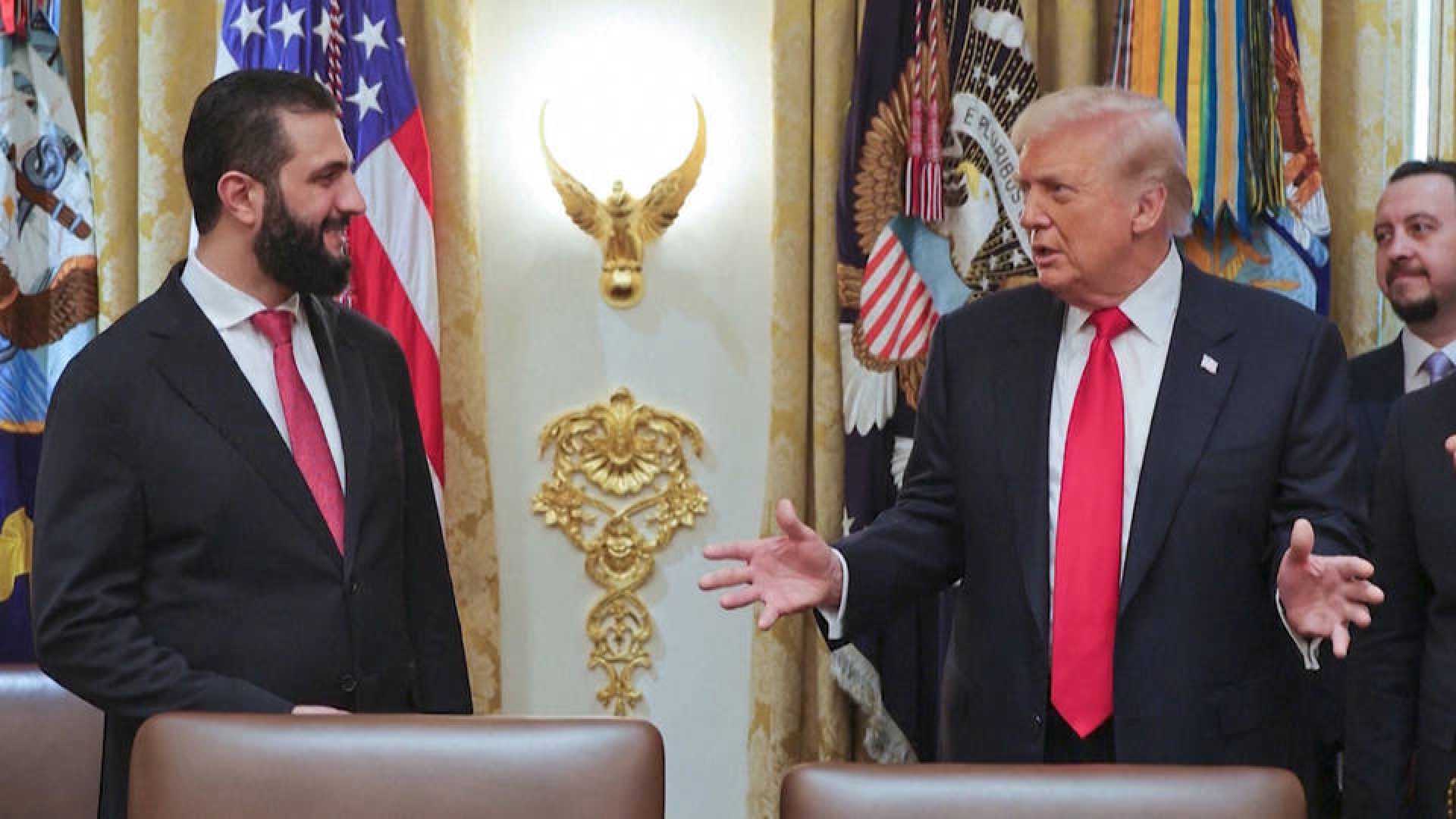Politics
Trump Hosts Syrian President Ahmed al-Sharaa at the White House

WASHINGTON — President Donald Trump welcomed Syrian President Ahmad al-Sharaa to the White House on Monday, marking the first official visit by a Syrian head of state since the country gained independence from France in 1946. This meeting came as part of a U.S.-led global coalition against the Islamic State group.
Al-Sharaa arrived at the White House around 11:30 a.m. and began a closed meeting in the Oval Office shortly after. Unlike other foreign leaders, he entered through West Executive Avenue, avoiding the West Wing driveway. After about two hours, al-Sharaa emerged to greet supporters before leaving in his motorcade.
This visit follows the recent lifting of sanctions on Syria, which were imposed during the lengthy rule of the Assad family. In January, al-Sharaa became the interim leader after toppling President Bashar Assad last December.
Trump and al-Sharaa first met in May during a summit in Saudi Arabia. At that time, Trump praised al-Sharaa, calling him a “tough guy” with a “strong past.” This meeting marked the first direct contact between U.S. and Syrian leaders since President Bill Clinton met Hafez Assad in 2000.
White House press secretary Karoline Leavitt stated that Monday’s visit exemplifies the president’s diplomatic efforts to engage with leaders worldwide to promote peace.
Trump, a Republican, noted that a “lot of progress” has been made with Syria since easing sanctions. Meanwhile, a U.S. official indicated that Syria’s inclusion in the global coalition would enable closer collaboration with U.S. forces, despite existing military engagements against the Islamic State in the region.
Before al-Sharaa’s visit, the U.N. Security Council voted to lift sanctions on him and other officials, signaling a new era in Syrian governance since the fall of Assad. Al-Sharaa is advocating for a permanent repeal of sanctions that were enacted due to human rights abuses during Assad’s regime. While Trump currently has waived the Caesar Act sanctions, a full repeal would need Congressional approval.
Proposals surrounding sanctions are debated in Congress. Senator Jeanne Shaheen, a top Democrat, has suggested an unconditional repeal, while Senator Lindsey Graham, a Republican ally of Trump, proposed a conditional repeal reviewed every six months. Advocates argue that conditional repeal could deter companies from investing in Syria, with Mouaz Moustafa, of the Syrian Emergency Task Force, comparing it to a “hanging shadow” that hinders progress.












